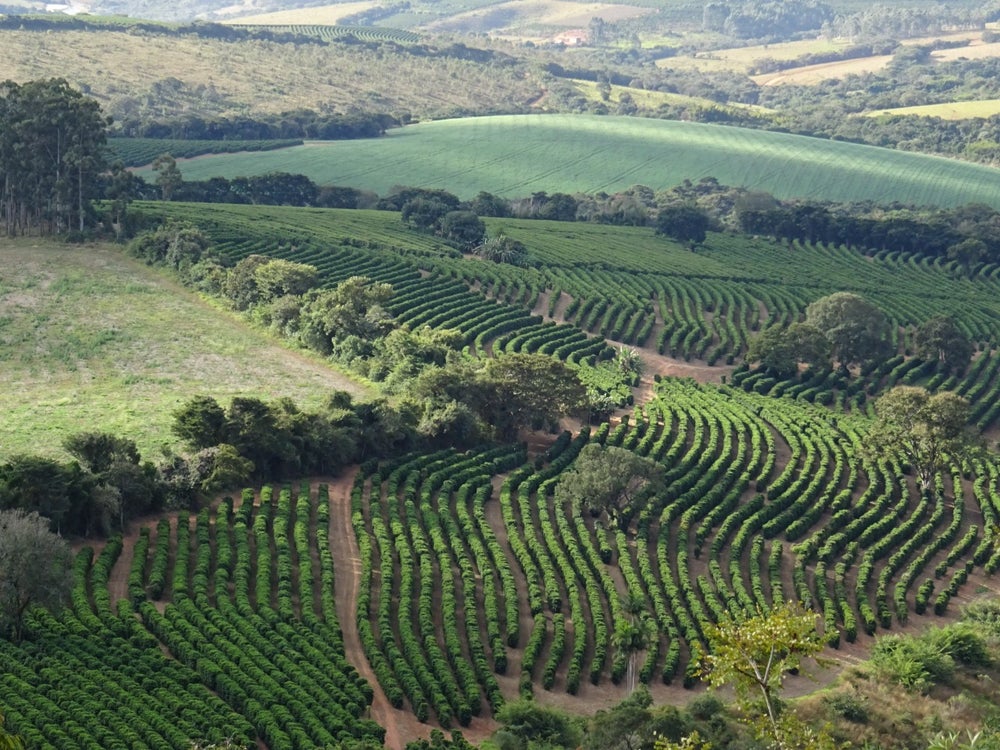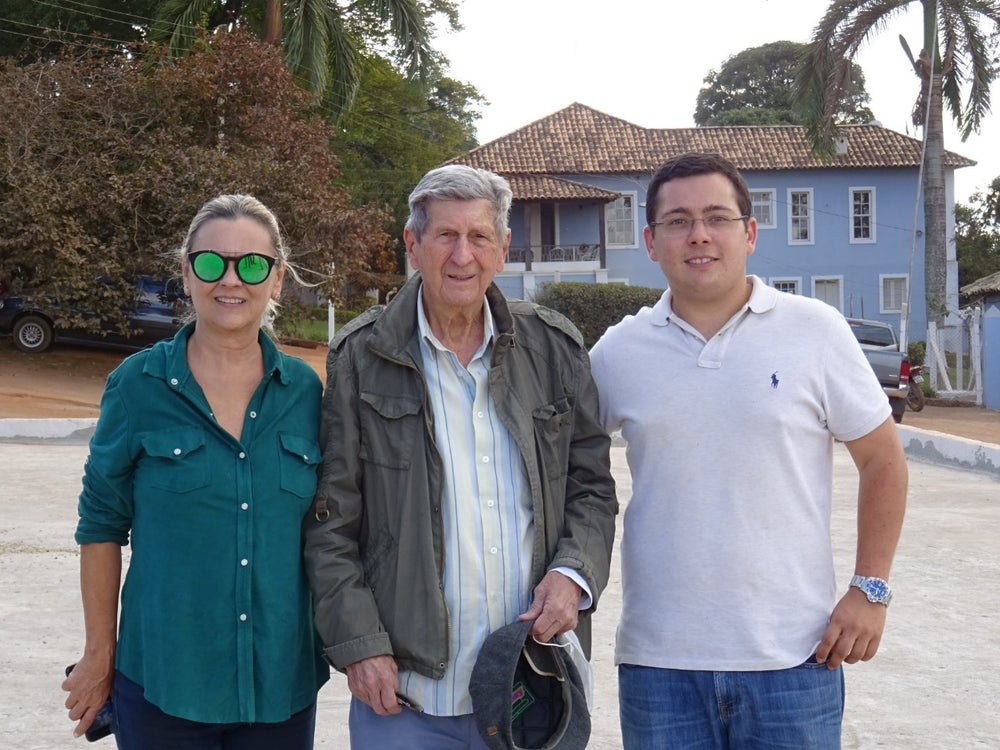About This Coffee
Fazenda Salto has been in the Araujo Reis family for generations. Today, the family is led by Dr Fabio Araujo Reis, a retired physician who lives on the farm full time.
Fabio’s great-great-grandfather, a doctor with a degree in engineering, created a strong family legacy of holistic social and environmental responsibility at their coffee farms. When Fazenda Salto was purchased in the 1970s, they continued their focus on the social well-being of their workers and strong environmental protections on the farm.
For the Araujo Reis family, partnering with Sucafina and attaining their IMPACT verification was a natural extension of their existing focus on the social and environmental aspects of coffee production. IMPACT supports the family as they preserve the natural ecosystem, create and safe and dignified environment for employees and ensure a safe and ethical food system for consumers.
One important pillar of Fazenda Salto is their focus on education for the children of farm workers and those in the surrounding community. The Araujo Reis family puts an emphasis on education, and many of them have doctorates and other high-level degrees. They founded a school on the farm about 50 years ago for the children of workers. Today, that school has blossomed into a model school that’s run by the state and educates the children of workers and children from the surrounding community. In particular, the school has an internet access project that connects children to the wider world through the internet and teaches them valuable computer skills.
While Brazil has public healthcare, the Araujo Reis family works with employees to help them access the services they need. Since Dr. Fabio’s brother is also a doctor, they work together to ensure that employees and community members have access to medically appropriate care.
Dr. Fabio instilled his love for the land and coffee production in his 3 sons and 2 daughters, three of whom oversee the day-to-day operations on the farm. Their children, Dr. Fabio’s grandchildren, are now young adults and also work on the farm.
Cultivation
This coffee is IMPACT-verified, a responsible sourcing standard from Sucafina. IMPACT verification provides assurance that the practices along Sucafina's supply chain are compliant with a range of social, environmental and economic standards.
The farm uses integrated pest management systems to protect coffee from pests and diseases. They use only approved pesticides and apply nutrients (both synthetic and organic) based on soil analysis and agronomic advice in order to best nourish the soil and limit nutrient run off into local waterways. They also measure and record all water usage and work to reduce water used in irrigation and processing each year.
The Araujo Reis family goes above and beyond to protect their workers and the environment. They’ve ensured that all tractors that use any chemicals have closed cabins to protect workers from any exposure. Fazenda Salto has 25 houses on site where workers can live safely and comfortably. About 80% of employees on the farm were born there and chose to stay or return to work on Fazenda Salto. Children of employees can also request gifts at Christmas that are then purchased for them by the Araujo Reis family.
Fazenda Salto is also Rainforest Alliance certified. In addition to coffee, Fazenda Salto maintains 400 hectares of preserved natural forested area.
Harvest & Post-Harvest
Fazenda Salto employs approximately 35 full time employees, and they hire additional labor during the harvest season. The land is hilly and they placed their trees strategically so that it was planted on land that the mechanical harvesters could reach. Harvesting is done mechanically with specialized machines that selectively remove ripe, red cherry from trees. The mechanical harvester can be set to specific standards to select cherry from only certain parts of the tree (such as lower, middle or top). Once harvested, ripe cherry is floated to separate out unripe cherry.
Ripe, red cherry is laid on patios to dry. The Araujo Reis family chose Natural processing because it uses significantly less water than other processing methods. If the weather is uncooperative, they also have 8 rotating driers and 8 static driers to finish the drying process. 80% of energy for their processing and drying machinery comes from solar panels that they installed in 2019.
Coffee in Brazil
Just under 40% of all coffee in the world is produced in Brazil - around 3.7 million metric tons annually. With so much coffee produced, it’s no wonder that the country produces a wide range of qualities. Brazil produces everything from natural Robusta, to the neutral and mild Santos screen 17/18, to the distinctive Rio Minas 17/18. In recent years, Brazilian producers have also begun investing more heavily in specialty coffee production. Through our in-country partners in Brazil, including our sister company, we are able to provide a wide range of Brazilian coffees to our clients: from macrolot to microlot.
Today, the most prolific coffee growing regions of Brazil are Espirito Santo, São Paulo, Minas Gerais, and Bahia. Most Brazilian coffee is grown on large farms that are built and equipped for maximizing production output through mechanical harvesting and processing. The relatively flat landscape across many of Brazil’s coffee regions combined with high minimum wages has led most farms to opt for this type of mechanical harvesting over selective hand-picking.
In the past, mechanization meant that strip-picking was the norm; however, today’s mechanical harvesters are increasingly sensitive, meaning that farms can harvest only fully ripe cherries at each pass, which is good news for specialty-oriented producers.
In many cases and on less level sections of farms, a mixed form of ‘manual mechanized’ harvesting may be used, where ripe coffee is picked using a derriçadeira – a sort of mechanized rake that uses vibration to harvest ripe cherry. A tarp is spanned between coffee trees to capture the cherry as it falls.
With the aid of these newer, more selective technologies, there’s a growing number of farms who are increasingly concerned with – and able to deliver - cup quality.


